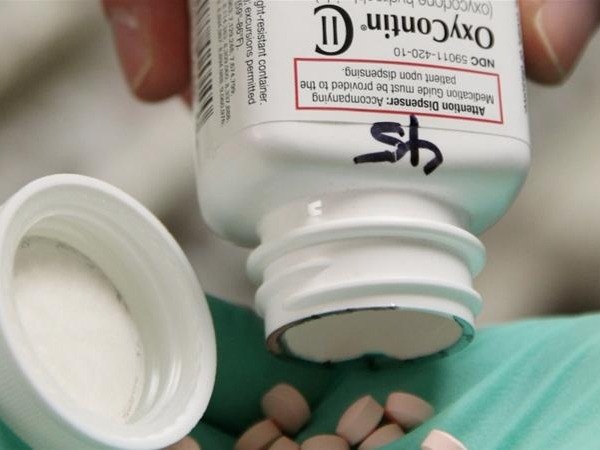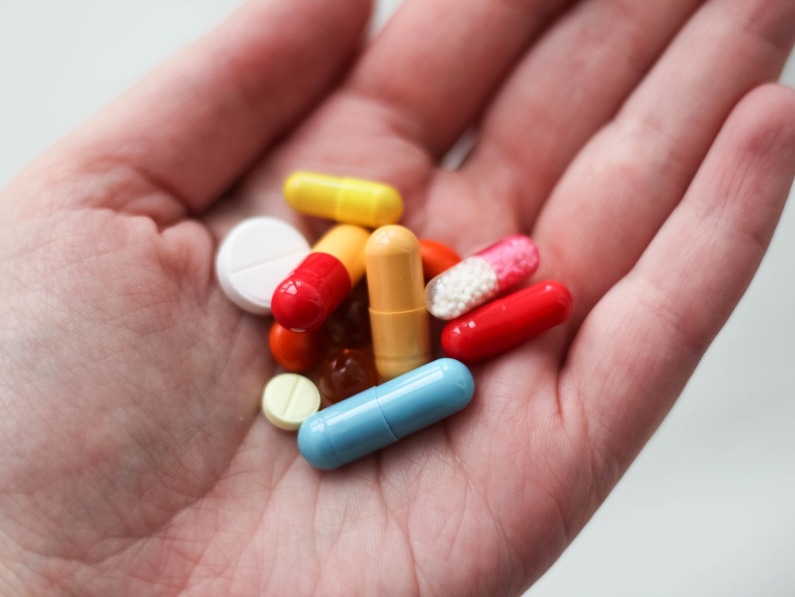If you’re in the healthcare field, you’ve heard that pharmaceutical companies hide data. This is especially true if it directly defies efficacy for a drug during clinical trials. You may also be familiar with the notion that doctors follow pharmaceutical company policies for compensation.
What is the truth, how do they tie together, and are pharmaceutical companies and R&D honest with findings?
Professionals under pharma giants’ umbrellas may have an internal understanding (and acceptance) of using favorable data. Sometimes professionals even turn their heads when it comes to publishing scientific data with favorable results, and discard negative findings. And this is why results may not be trustworthy; there is a direct conflict of interest with the doctors carrying out these studies.

Purdue Pharma Giant and the Opioid Epidemic
In the most recent ethical crisis, Purdue Pharma, maker of OxyContin, filed for bankruptcy on Sept 15, 2019. The Sackler Family of Purdue Pharma is hoping to shield itself from more than 2,600 federal and state lawsuits.
OxyContin is largely responsible for the opioid epidemic the United States is facing. Over hundreds of thousands of lives have been either lost or affected. Investigators have also uncovered that the Sackler Family has been secretly funneling billions of dollars into private off-shore accounts over the past two decades. This was of course in preparation for the perfect storm that has just arrived. When the drug first came out, Purdue Pharma exaggerated claims about the drug while downplaying its addictive side-effects. Purdue Pharma heavily marketed OxyContin’s most explicit remedy – a painkiller.

How It Works
Many may not actually know this, but (for the most part) drug companies pay for all the legwork themselves. Their funding covers the researchers, running the experiments, designing, and analyzing the clinical trials themselves.
The data from clinical trials is indispensable when it comes to approving medicines and discovering treatments. Because of this, the realm of leniency is wide open for pharma giants. It allows drug companies to fake study results and even hide significantly dangerous side effects. Once they’ve passed these obstacles, the Food and Drug Administration (FDA) approves their drug and allows it onto the market.
Clinical trials are the first stop for pharmaceutical companies prior to the FDA approving a prescription drug. Researchers obtain data from these trials, hoping to demonstrate safety and efficacy for the drugs before going on the market. And since the National Institute of Health (NIH) is coming up with less and less funding, pharmaceutical companies are forking it all out themselves. This creates an alarming conflict of interest.
This type of funding is more large scale than people assume. Respiratory system trials can cost roughly $115 million, and just a few years ago, the NIH and pharmaceutical companies funded around $70 billion in trials combined.
So How Does Funding Have An Impact On Results?
Because of the amount of money involved in funding the trials, pharmaceutical companies want to make their money back. Brand name drugs are the way to go for pharma giants because they bring in the most profit. Statistics show that only a little over 30% make it to the final testing phase, which is why drug companies face pressure for good outcomes from the clinical trials.
Luckily, the NIH, academic medical institutions, and even some charities still fund some studies. These are classified as independent studies, and the outcome is final, regardless of if the results showed efficacy or not. This is why these trials are the “gold standard” for data because its truly in the interest of the patient and results are not money-driven.

Some Alarming Incidences of Publication Bias
When pharmaceutical companies hide data and publish only whats favorable, its called publication bias. Researchers used to focus their clinical trials on breakthrough research, but in the past couple of decades, avoiding negative results seems to have become the norm. Some alarming incidences have popped up in the past few years, leaving a lot left to be learned.
The attorney general filed a lawsuit accusing the drug giant GlaxoSmithKline (GSK) of hiding negative information about Paxil, a popular drug used to treat depression in the early 2000s. According to the suit, GSK conducted five clinical trials of Paxil in adolescents and children. Of those five, GSK only published one – the one that most closely supported the efficacy of the drug. A whistleblower at a medical conference exposed the fact that not only was Paxil no more effective than a placebo, but it could cause suicidal thoughts in adolescents.
The same drug giant, GSK, also buried unreliable data for the type 2 diabetes medication Avandia. The government later found out that Avandia may increase the risk of heart attacks, but these findings were never published.
A little over a decade ago, AstraZeneca heavily marketed the antipsychotic Seroquel, supposedly an effective medication for schizophrenia. But when 26-year-old Dan Markingson committed suicide by decapitating himself with a box cutter, the government began investigations into the drug. Investigators found that Seroquel didn’t treat the disease effectively. Not only that, but AstraZeneca paid Charles Schulz, the doctor who ran the clinical trial, and Markingson’s doctor hundreds of thousands of dollars to manipulate Seroquel’s results. This is a classic example of when pharmaceutical companies hide data.
More Instances of When Pharmaceutical Companies Hid Data
The widely used anti-flu drug Tamiflu has not been safe from publication bias as well. In 2014, an independent organization called the Cochrane Collaboration published the safety and effectiveness of Tamiflu. Tamiflu had previously been heavily marketed by its manufacturer, Roche.
The Cochrane Collaboration uncovered more than 70 clinical trials and more than 100,000 pages of data that was unpublished. Of this data, most of it was negative or inconclusive results. Not only was Tamiflu found to have little or no benefit in preventing the flu or shortening its duration, but it also had life-threatening side effects like suicide. The FDA still has not published the data on suicides linked to Tamiflu.

Medical Device Data Is Also Not Safe From Manipulation
In 2011, Dr. Eugene Carragee accused Medtronic of hiding the side-effects for its Infuse Bone Graft. In The Spine Journal, he published an editorial demonstrating that there were life-threatening side effects associated with rhBMP-2. This was the active component of Infuse, and investigators found that side effects were 10 to 50 times higher than what researchers claimed in studies.
Johnson & Johnson’s DePuy ASR hip implant ended up having failure rates of over 40 percent, while its studies publicly announced only 13 percent. Since then, DePuy has paid over $4 billion to cover the lawsuits. Nevertheless, as of July 2019, there are still over 11,000 lawsuits pending for the thousands of people who suffered hip crippling injuries because their implants failed early or caused metal poisoning.

Are Pharma Giants Ever Honest?
There are, however, a few incidences where pharmaceutical companies halted research and pulled their drugs out of clinical trials phase III. In 2016, Pfizer pulled an antibody to PCSK9, bococizumab, from clinical trials. Bococizumab showed promise in reducing the occurrence of heart attacks and strokes in heart disease patients. According to the published NEJM article, “Bococizumab was commonly associated with the development of high-titer anti-drug antibodies, an effect that resulted in substantial attenuation of LDL cholesterol-lowering at 52 weeks.”
The study had included over 27,000 heart patients and had also cost around one billion dollars. It was a substantial loss for the pharmaceutical giant. Also, Pfizer went on to outline the details of the results, by publishing two more comprehensive articles regarding the bococizumab study designs and results. In this specific incident, Pfizer was certainly honest and straightforward about both the study and the results. Of course, Pfizer paid NEJM authors for publishing the data.
What Happens When Drug Giants Influence Trial Results?
The most detrimental cost of influencing trial results is that it makes data on drugs unreliable. If that data is not reliable, the drug may not really be effective. And how would it feel to learn that the drug you’re taking is not only ineffective but may cause dangerous side effects? How are doctors supposed to inform and care for their patients with tools that have been compromised? This forces patients to distrust their own medications and route to good health overall.
Because we’ve been under the umbrella of these influencers for decades now, there are some tried and true methods of seeking trustworthy medicines.

How Do We Find Out Which Drugs Are Effective?
So what this really means is research, research, and more research. As a patient, you should always remain well-informed. Know your doctors, and obtain full information about any prescription drugs or medical devices. This is one unique scenario in which loads of information on the internet can actually be beneficial. You can read personal consumer experiences and see the results of the conducted studies. Thanks to the Freedom of Information Act, consumers have the right to request records from federal agencies. This has to be reviewed by the FDA first. This is a great idea for brand new drugs on the market, which one should always proceed upon with cautious eyes.
Find out if the drug has had any lawsuits behind it. If any drug or device has a history of lawsuits, this is a major red flag. The more people involved, the more dangerous the drug or device is. If you’ve already taken the drug or used the medical device, the lawsuit may apply to you as well.
The Bottom Line
We find ourselves in a devastating position when it comes to pharmaceutical companies hiding data because our drugs might not be effective. Therefore, if we can increase the NIH budget, more of these trials will remain independently run – and therefore the results will be backed by integrity. Only the government can tackle the enormity of these issues.
Perhaps the most substantial approach we could take now would be to buckle down on the current policies. Although companies must submit their clinical trials when first seeking approval to go to market, once the FDA gives it the green light and publishes the data, its a slippery slope.
The drug companies are not responsible for reporting new trials that question drug efficacy, nor do they need to publicize post-consumption drug findings. It is at their discretion. All of this should be available publicly so that patients can make educated decisions on their health.







